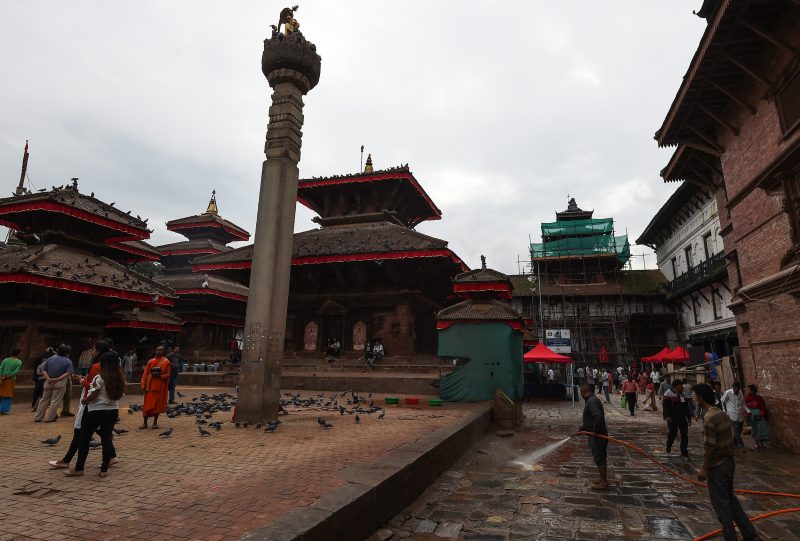Nepal extends deadline for war crimes investigations
Nepal’s decade-long civil war left 17,000 dead (PRAKASH MATHEMA)
Kathmandu (AFP) – Nepal on Wednesday approved a third extension for commissions tasked with probing crimes committed during its decade-long civil war, promising changes to make the hamstrung bodies effective.
The commissions had initially been given two years in 2015 to probe abuses by government forces and Maoist rebels during the conflict that left 17,000 dead and others missing without a trace.
But even after four years and two extensions, their mandates were to expire on Saturday without resolving a single case.
A parliament meeting passed an amendment to the Transitional Justice Act that allowed a year’s extension.
Law minister Bhanu Bhakta Dhakal said in his parliament address that the terms of the commissions had to be extended to avoid a legal vacuum.
“The government understands that lawmakers are concerned the issues may not be resolved with the existing structure, working approach and speed of the two commissions… we are committed to finding a permanent solution,” he said.
More than 65,000 complaints have been filed to the two commissions — one investigating an estimated 3,000 forced disappearances and the other focusing on crimes such as rape and murder.
Critics say the truth and reconciliation process has been poorly designed from the outset and stymied by a lack of funding and political will.
The government has not granted the commissioners the legal powers necessary to prosecute war crimes, while a provision granting amnesty to perpetrators is still on the books.
“It is certain that the main objective of establishing these commissions will not be met unless the laws, mechanism and process is improved according to international standards,” rights organisations said in a joint statement Wednesday.
Last month, the United Nations cautioned Nepal that it risked failing war crimes victims unless there was a broad public trust in the process, in a statement jointly signed by the US, Britain, France and Germany, among other nations.
“No government has been able to give us justice, but we still have to hope for a mechanism we can trust,” Bhagiram Chaudhary, president of Conflict Victims’ Common Platform, told AFP.
The fighting ended in 2006 with a peace deal between Maoist insurgents and government forces. Many former rebels now fill the political ranks of Nepal’s ruling party.
Just two convictions related to civil war-era crimes have been handed down in civilian courts, one linked to the murder of a teenage girl and the other concerning the killing of a journalist.
Disclaimer: This story is published from a syndicated feed. Siliconeer does not assume any liability for the above story. Validity of the above story is for 7 Days from original date of publishing. Content copyright AFP.


